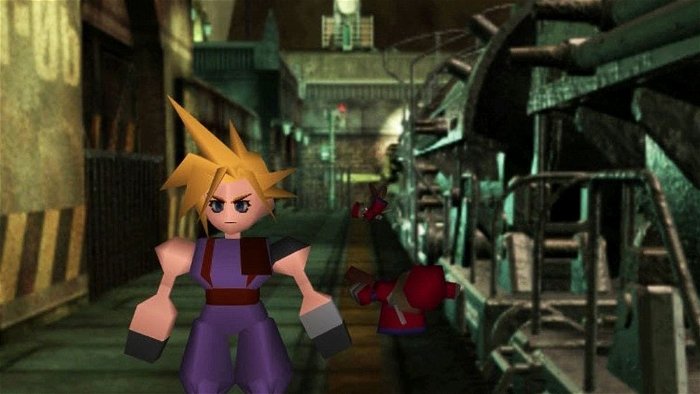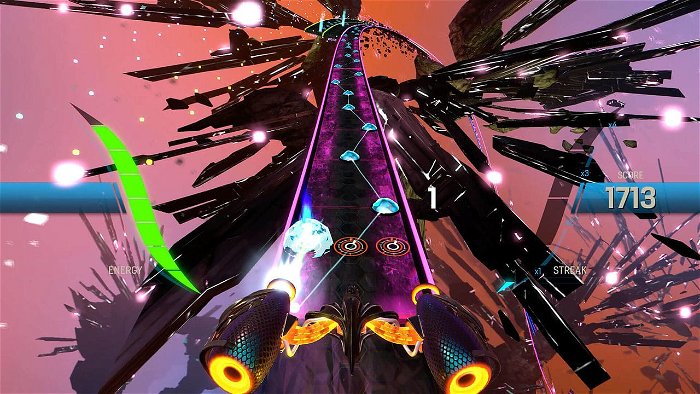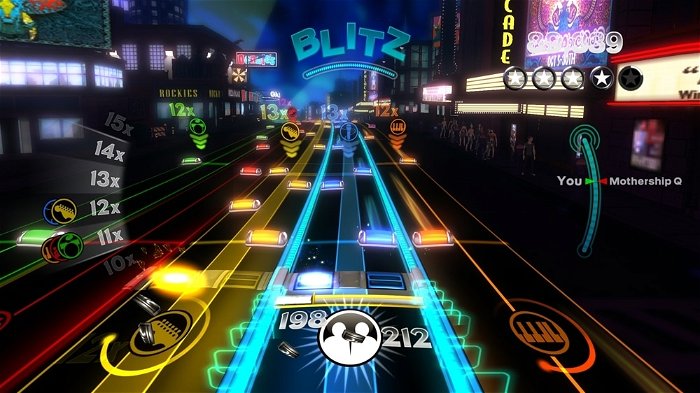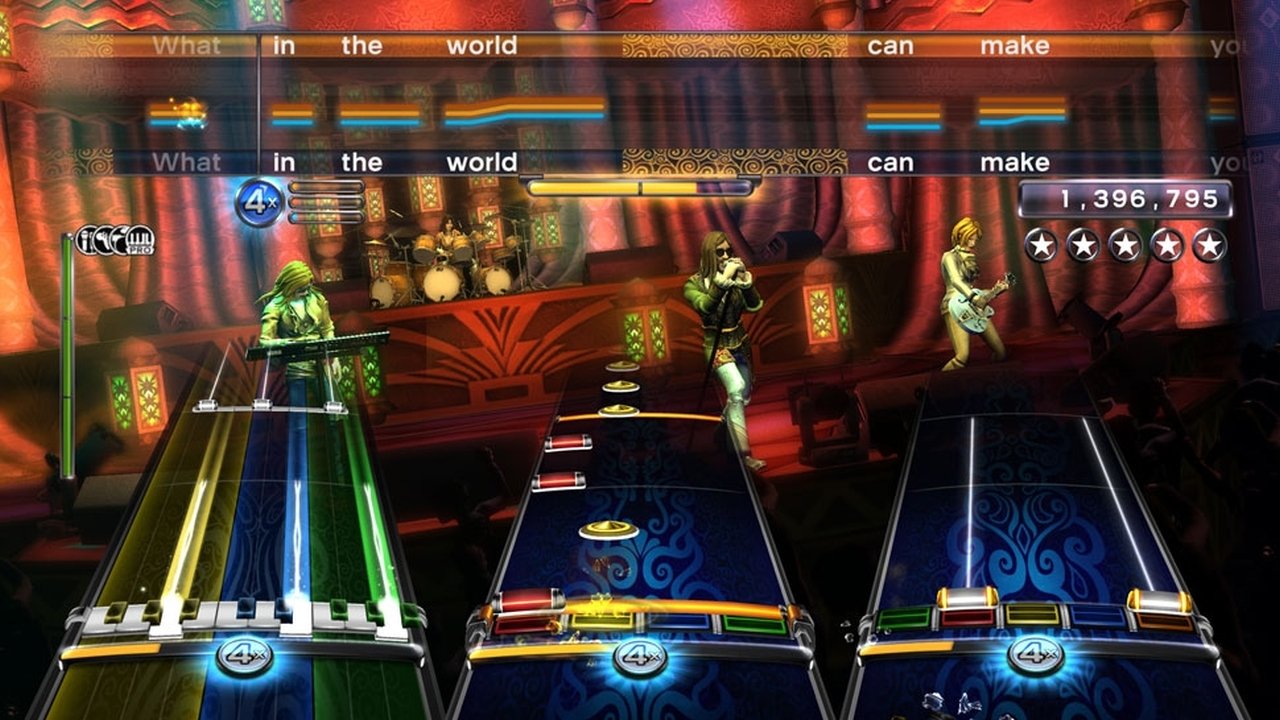Gaming has never been relegated only to a solo activity, but it’s also never been exclusively social.
Just as we grew up gaming until 3 AM in our living rooms hunched unattractively over a console, the dim glow of the television casting a muted shadow over our faces, we wallowed in our friends’ company for rousing Mario Kart competitions and GoldenEye free-for-alls where screen-watching was strictly prohibited. Though a Final Fantasy VII marathon to finally get to the bottom of the untimely death of Aerith was an engaging solo quest, sometimes it didn’t hurt to sprinkle in some buddies to chime in or invite them over for an impromptu LAN party.
You could just as easily (and voluntarily) disconnect completely from your noisy living room and jockeying for position when it comes to high scores as well as the hustle and bustle that comes with gaming with friends. It was so very simple to remove yourself from situations where other players could ruin your fun, all to seal yourself away in a single-player cocoon in which you were free to explore, vanquish, and enjoy yourself in solitude. If you wished to share a game milestone or screenshot, you needed to record it via cell phone camera, some kind of video capturing device, or recording on VHS/DVD.

If you conquered a particularly gnarly boss, you had to produce proof and relay the story at your next get together to make sure everyone knew of your conquest. While a bit inconvenient by way of sharing, in those days there existed a comfortable yet rigid line of separation between private entertainment time and over-sharing in social situations. You were never forced to participate with others in order to advance or earn points in-game, and it was never hinted at that networking with friends should ever be a requirement or “nudge” in the right direction. In this, gaming could be enjoyed as a singular activity, just as easily as an overtly social one.
Rather than focusing on the music and strategies to improve gameplay, it seems the social elements are spotlighted as if every time you fire up a song you’re bombarding your friends with invites and challenges like FarmVille bombs.Present-day gamers are not afforded this simple luxury, however, assaulted on all fronts by Facebook integration here, Twitter publishing there, and social networking disguised as “gaming” with friends. While a glut of these “options” are admittedly extra frills and not at all required for game completion, the simple fact that they exist and are becoming obtrusive is enough to get angry about.
Where once we had a legitimate choice between sharing with peers, the current state of gaming reflects a loss of privacy, independence, and solitude that is absolutely required of some experiences. It’s true no one is “forcing us” to play ball, but no one should feel as though they’re being bullied into the crowd mentality of leaderboards, challenges, and “daily” rewards. Unfortunately, as single-player campaigns seem to slowly wither away and multiplayer/co-op shifts to the norm in the eyes of big publishers we’re being herded toward a friend-request future.
Recently this has become shockingly evident with the release of Harmonix’s pet project Rock Band Blitz, a PlayStation Network/Xbox Live Arcade offshoot of the classic FreQuency/Amplitude released back in the glory days of PlayStation 2. The pair of rhythm games garnered a rabid cult following due to their challenging and addictive track lists and intuitive control scheme. Amplitude introduced the concept of “remixing” tracks that players could sprinkle in their own personal touches with tracks like Garbage’s “Cherry Lips (Go Baby Go)” or Slipknot’s “I Am Hated.”

The seminal Rock Band and Guitar Hero parroted these very same mechanics and interpreted them in a much different manner, adding multiplayer to the mix. FreQuency and Amplitude with the PlayStation 2’s limited online support provided leaderboards and player interaction, but never to a degree where players wishing to engross themselves fully in the game world were forced to compete or ‘show off” replays, stats, or anything of the sort. Rock Band Blitz is evidence that not only the landscape of gaming has changed immensely over the past nine years, but so have developers’ priorities.
It’s a changing landscape I’m not sure I want to stay a part of. Rock Band Blitz is completely different from the excellent Rock Band Unplugged, the portable rhythm gaming experience that did an excellent job bringing the “big” party feeling to a handheld device. Blitz feels much more like an attempt to bring freemium-style rewards and friend-harassing competition as seen on Facebook to a console. Gold coins and “cred” is earned through playing songs, connecting with Facebook, and performing just about any action that you can think of save actually buckling down and performing well.
Everywhere you turn there’s a nod toward how you rank in terms of the leaderboard, where you’re currently sitting, and what your friends are doing. Rather than focusing on the music and strategies to improve gameplay, it seems the social elements are spotlighted as if every time you fire up a song you’re bombarding your friends with invites and challenges like FarmVille bombs. This isn’t a problem, per se, with the game, but certainly a sign of the times where we’re not sure anymore if the content is the sole focus or if sharing every single move is the most important end result.
It’s not only Rock Band Blitz that has attempted this—though the music game does reflect the shifting priorities best. This is a phenomenon that has been edging up slowly for a while now, whether via Call of Duty Elite subscriptions, Battlefield Battlelogs, or the insufferable practice of connecting and “liking” pages on Facebook for points or in-game content.

It’s readily apparent we live in an age where our lunches, thoughts while on the toilet, and weekend plans are so easily broadcasted for all of the world to see, and the fad has spread like wildfire to the games and franchises so many of us grew up with. Not only is effort shifting toward granting more social network opportunities rather than a quality campaign or multiplayer affair, but it’s ushering in a new era of quick-hit play-and-drop-it games that must cater to a growing audience of overzealous social sharers. Invest in a new IP? Ensure players are able to post their high scores and challenge each other’s greatness first, by all means. It’s regrettable to be sure, and perhaps further proof that gaming as a medium, as we know it, is about to change rather drastically.
It’s a changing landscape I’m not sure I want to stay a part of. The simple joy of loading up an epic, several disc-spanning RPG with zero goals and zero distractions other than saving the world or a shooter where the exciting twists are left up to me to discover without besting a friend’s headshot counts or completion time. Long ago in a living room filled with gamers and the plight of one familiar plumber ,we weren’t forced to feel as though we’re doing something “wrong” by not doing so. Will solo gaming ever return to its rightful place as a legitimate option for players wishing to go it alone? The future is uncertain, but one thing is becoming quite painfully clear: you’re never really alone anymore when it comes to gaming.



